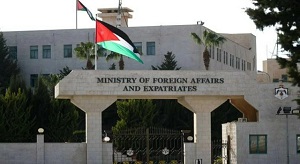Ties With Arab Countries Are Too Important to Biden to Be Sacrificed - By Rami al-Rayes, Asharq Al-Awsat
Now that a Biden administration is all but guaranteed to be inaugurated on January 20, 2021, it is time to consider how best the Arab countries should engage it as of now and through the first half of next year.
As stated in a previous article, the the Middle East will not be a top priority for the incoming Biden administration. At the same time it will be well aware that the US can ill afford to ignore the region.
There is apprehension amongst many Arabs about the policies the Biden administration will pursue in the region.This is especially true when it comes to Iran and human rights , which the incoming administration has made clear will be on top of its regional agenda.
While the Middle East may losing its relative importance to the US, relations with Arab countries are too important to Washington to be sacrificed for either Iran or even the ideals that presumably anchor its foreign policy. The new administration will have to strike a balance that serves its interests , its ideals and the interests of its regional allies. Arab countries should help it in this regard in a manner that also safeguards their own interests.
The Arab countries cannot afford to wait until the new administration settles down by early summer 2021. They need to shape the conditions for engagement with the new US administration. They can only do so by taking the initiative in demonstrating their usefulness in addressing at least some of the conflicts that have contributed to the instability of the region, and which the US would welcome assistance for their resolution.
The region is replete with conflicts and disputes that have held back economic, political and social progress in many Arab countries.That is not to say that that the lack of such progress is solely a function of these conflicts and disputes. Domestic factors clearly bear the brunt of the responsibility. But given the strong interaction between the domestic and external contexts in the region, any positive movement on the latter will impact favorably the former.
The Palestinian -Israeli dispute continues. Conflicts in Syria, Libya and Yemen. The dispute over the Nile river between Egypt, Sudan and Ethiopia persists. Lebanon is imploding. Israeli, Iranian and Turkish policies continue to cause serious concern to a number of Arab countries and others.
While it would be appealing to take the initiative on all fronts, for practical reasons it would be wise to avoid overloading the relationship with the Biden administration. Already there is some movement on Libya, Iraq,Yemen and the Nile waters dispute. So better allow these processes to continue on their path..
Two conflicts deserve special attention, and can provide an entry point for a constructive engagement with the new administration. The Palestinian- Israeli conflict and Syria.
Finding a political solution to Syrian problem is the where the Arabs can prove their usefulness. While Syria was never a priority of the US, it remains a continuous distraction and nuisance as it relates to Israeli security, especially amid the Iranian influence.
For the Arabs, Syria is where Turkey and Iran’s interference reaches its most pernicious and sinister form. The longer it takes to arrive at a political settlement, the more Ankara and Tehran become entrenched in Syria, whetting their appetite for further intervention in the Arab region and thereby undermining the security of many Arab countries. Altering the relationship with Iran and Turkey with Arab countries could serve the interests of all parties, which could lead to stability in the region on the long-term.
The Arabs therefore need to take the initiative in providing a way forward to a political settlement in Syria . I have outlined some thoughts in this regards in articles published in this newspaper last December and again in June. The idea is basically to propose a package deal to engage the Syrian government on the creative implementation of UNSCR 2254 and accelerating the process of reconstruction be based on an incremental incentives-based approach: A progressive lifting of sanctions, gradual normalization of relations with Europe and staggered disbursement of reconstruction funds. In exchange Damascus would undertake confidence building steps and more importantly the necessary political and economic reforms to create an safe and secure environment for UN supervised elections to take place. Only then can the Arab countries start the process of rolling back Iranian and Turkish encroachment in Syria and beyond.
The other area where Arabs can help the Biden administration is the Palestinian- Israeli conflict. The Trump administration has caused significant damage to the prospect of a two-state solution. The Biden administration is well aware of that, and it appears willing to revive the prospects of such a solution.
The Trump Plan is for all practical considerations off the table now. But unilateral Israeli actions to implement it continue to be possible, especially in the time before the new administration takes office in January.
In spite the move of some Arab countries to establish diplomatic and economic ties with Israel, all remain committed to establishing a Palestinian state based on the June 5, 1967 borders with East Jerusalem as its capital and a just solution to the refugee issue in line with the relevant UN resolutions.
The Palestinians, with Arab support, need to present an alternative vision for the solution. There are many ideas in this regard. I have presented some ideas in articles published in February and August of this year. Also, Nabil Fahmy, the former Foreign Minister of Egypt, has already made an important contribution in this regard in an article published last February. In it he argued that the Palestinians should present a detailed initiative based on the Arab Peace Plan, comprising the following elements: The borders of the Palestinian state, including what may be included in terms of minor adjustments to borders to unify villages; an appropriate formula for East Jerusalem as the capital of the Palestinian state that also addresses the issue of worship for all religions and the related arrangements to ensure such an outcome; the issue of the Palestinian refugees, including Israeli responsibility, as well as how to deal with the Palestinian security concerns and reasonable Israeli defense requirements.
It's time for an initiative to save the prospects for a two- state solution, which the Biden administration is likely to welcome as it would return the process to its fundamental premise: Land for peace, not peace for peace, as promoted by Netanyahu and at the same time it would help it in better managing its relationship with Israel.
By taking the initiative to propose a way forward on these problematic but critical issues, the Arab countries would be able to engage constructively with the Biden administration. This would also mitigate the impression propagated by Israeli, Iranian and Turkish media that Israel is succeeding in creating a united front with some Arab countries against the Biden administration in anticipation of its policies on Iran. Israel can afford to take the risk with the new administration. Arab countries should have a better way to deal with incoming administration.
I cannot see a congruence of interests between the Arab countries and Israel in the region. There might be some convergence when it comes to Iran, but certainly not enough to be co-opted into the game Netanyahu has been playing for some time. The Arab countries need to be involved in any new process on Iran. To be able to do so they need to demonstrate that they can be constructive in addressing, at least some of the US concerns, especially those that also serve their own interests.
So in next few weeks, the concerned Arab countries need to come up with two initiatives. One on the Palestinian issue, the other on Syria.
This will certainly contribute to the creation of a more favorable atmosphere for constructive engagement with the incoming Biden administration.
Latest News
-
 Jordan takes part in operation targeting Daesh locations
Jordan takes part in operation targeting Daesh locations
-
 Prime minister inspects infrastructure work at Amra City project
Prime minister inspects infrastructure work at Amra City project
-
 Syria monitor says US strikes killed at least five Daesh members
Syria monitor says US strikes killed at least five Daesh members
-
 Jordan welcomes lifting of US sanctions on Syria
Jordan welcomes lifting of US sanctions on Syria
-
 King hails Nashama achievement, Jordanians’ unity, resilience
King hails Nashama achievement, Jordanians’ unity, resilience